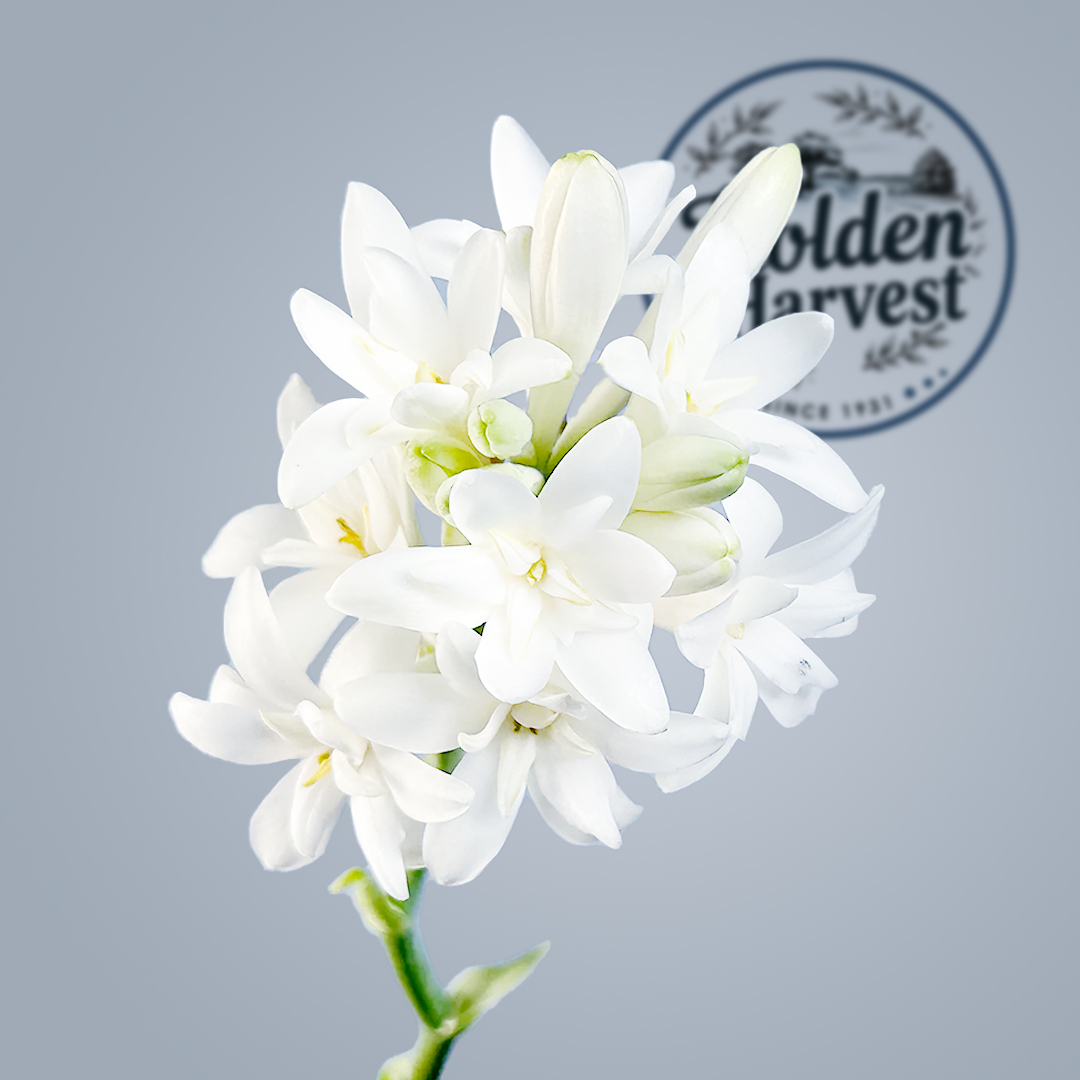The Tuberose flower (Polianthes tuberosa) is a stunning, highly fragrant bloom cherished for its beauty and captivating scent. Often used in perfumes, bouquets, and gardens, this flower enhances any space with its elegance. Its delicate white petals and enchanting fragrance make it a favorite among florists and gardeners.
type of Tuberose:
The Tuberose flower belongs to the Asparagaceae family and originates from Mexico. It grows in clusters on long, slender stems, reaching up to three feet in height. The flowers bloom in late summer and early fall, releasing an intense, sweet aroma that becomes more pronounced at night. Its creamy-white petals create a striking contrast against green foliage, adding sophistication to any garden.
There are two main types of tuberose, each with unique characteristics:
To thrive, the tuberose plant requires full sunlight and well-drained soil. It grows best in warm climates with temperatures between 70-80°F (21-27°C). Regular watering is necessary, but excessive moisture can lead to root rot. The plant benefits from organic fertilizers, ensuring healthy growth and vibrant blooms.

Plant tuberose bulbs in spring for summer blooming. Space them 6-8 inches apart to allow proper growth. Ensure consistent watering but avoid soggy soil. Deadheading faded flowers encourages prolonged blooming. In colder regions, store bulbs indoors during winter to protect them from frost.
Tuberose plants are susceptible to aphids, spider mites, and fungal infections. Regular inspection and natural remedies, such as neem oil, help prevent damage. Proper air circulation reduces the risk of fungal diseases.
Conclusion
The Tuberose flower is a timeless symbol of elegance and fragrance. Its exquisite beauty, aromatic presence, and low maintenance make it a perfect addition to gardens and floral arrangements. Whether you choose the Single Tuberose for its intense scent or the Double Tuberose for its lush blooms, this flower will bring lasting charm and fragrance to any space.
1. How long does the tuberose flower bloom?
Tuberose blooms last for several weeks, typically from late summer to early fall.
2. Can tuberose grow in pots?
Yes, tuberose thrives in containers with proper drainage and ample sunlight.
3. Does tuberose require a lot of maintenance?
No, it needs moderate care, including regular watering, fertilization, and occasional pruning.